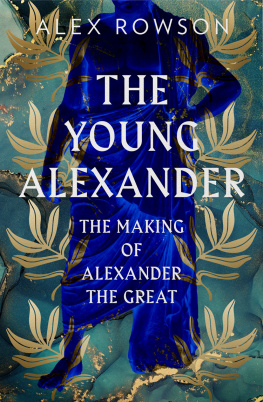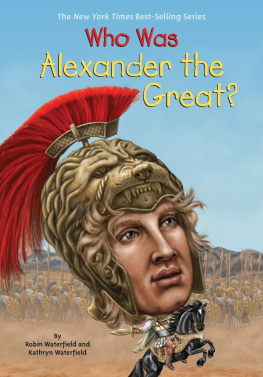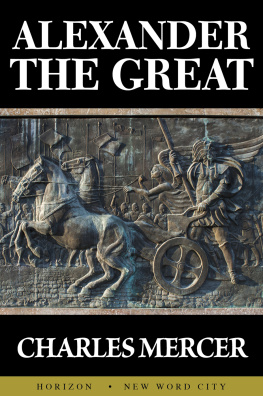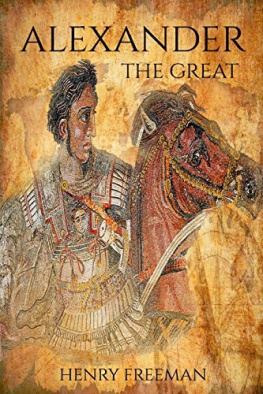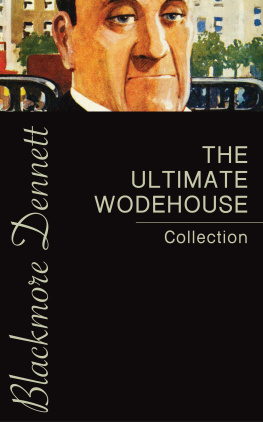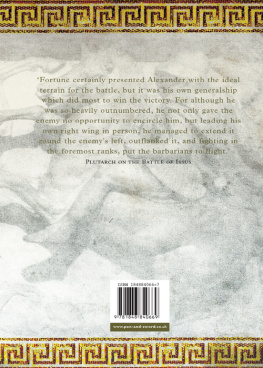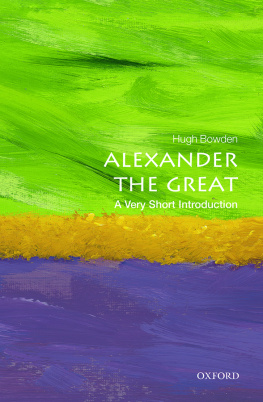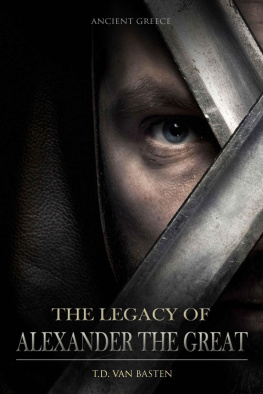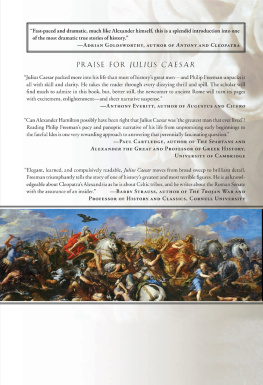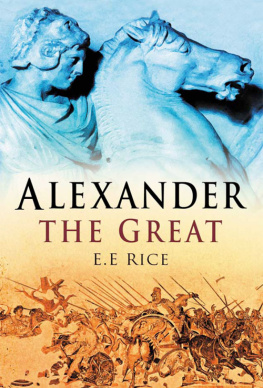Alex Rowson is a writer and award-winning TV producer who has worked on some of the most successful ancient history and archaeology programmes of recent times, including Richard III: The King in the Car Park (C4), Time Team (C4) and Digging for Britain (BBC4). As well as Greece, he has studied and worked in the UK, Italy, Peru and Egypt, and both his writing and photography have been widely published.
Australia
HarperCollins Publishers Australia Pty. Ltd.
Level 13, 201 Elizabeth Street
Sydney, NSW 2000, Australia
www.harpercollins.com.au
Canada
HarperCollins Canada
Bay Adelaide Centre, East Tower
22 Adelaide Street West, 41st Floor
Toronto, Ontario M5H 4E3, Canada
www.harpercollins.ca
India
HarperCollins India
A 75, Sector 57
Noida, Uttar Pradesh 201 301, India
www.harpercollins.co.in
New Zealand
HarperCollins Publishers New Zealand
Unit D1, 63 Apollo Drive
Rosedale 0632
Auckland, New Zealand
www.harpercollins.co.nz
United Kingdom
HarperCollins Publishers Ltd.
1 London Bridge Street
London SE1 9GF, UK
www.harpercollins.co.uk
United States
HarperCollins Publishers Inc.
195 Broadway
New York, NY 10007
www.harpercollins.com
My sincere thanks go to my agent Donald Winchester, at Watson, Little Ltd, who first saw potential in the idea of a book on the young Alexander, and Arabella Pike at William Collins, who commissioned the work and provided invaluable feedback on the early drafts. Thanks also go to the rest of the HarperCollins team, who helped bring the final book to fruition.
In 2019, I was lucky enough to live for a year in northern Greece, and my stay was greatly enriched by the generosity and kindness of a number of individuals. My landlord Kostas and his family helped me settle in an apartment on Herakles Road in Veroia and invited my parents and me to a memorable Easter feast. Evanthia Kalaitzidou and her husband Panayiotis welcomed me into their home and lives, sharing numerous plates of delicious local food, blissful hours of conversation and introducing me to new friends. Anastasia Tanampasi, an exceptionally talented young historian, spent innumerable hours helping me with my Greek, offering translations and information on various aspects of regional history and tradition. Ioannis Graekos patiently answered my barrage of archaeological questions, Laura Wynn-Antikas treated me to some idyllic lunches in Pydna, and Charis Tsoungaris took me on a memorable tour of the wilds of Western Macedonia. Im incredibly grateful for their friendship.
During my travels around Greece and the Balkans, I was fortunate to meet many archaeologists who kindly spoke to me about their work. Im in awe of their passion, enthusiasm and willingness to share information on their latest finds. They include Angeliki Kottaridi, who also provided access to Aigais palace reconstruction project, Athanasia Kyriakou at the sites sanctuary of Eukleia, Bonna Wescoat at Samothrace, Ioannis Akamatis at Pella, the BritishAmericanGreek team working at Olynthos, Angelos Zannis at Philippoi, Lyudmil Vagalinski and his team at the excavations of Herakleia Sintike, Emil Nankov at Sofia, Igor Lazarenko and Aleksander Minchev at Varna, Zoran Rujak at Strumica, and, finally, Kliti Kallamata at Kor, who showed me the intriguing tombs at Selca e Poshtme, which I would never have found without him, and the possible location of Pellion above present-day Zvesd. I was deeply saddened to hear of his passing in 2020.
My research was greatly aided by the excellent staff at Veroias Public Library, the British School at Athens and Londons Institute of Classical Studies, whose collections have allowed me to track down even the most remote references. A number of experts in the field of Macedonian studies kindly took the time to read the manuscript and certain chapters, providing invaluable feedback and corrections: Miltiades Hatzopoulos, Charis Tsoungaris, Chrysoula Saatsoglou-Paliadeli, Laura Wynn-Antikas, Emil Nankov, Richard Stoneman and Paul Cartledge. Mary Ruskin also provided insightful comments on the proof copy. It goes without saying that any errors in the text are mine alone. A special thanks to all.
Lastly, to my family (Clan Rowson), to whom this book is dedicated: my parents Brian and Jill, brother Ed and sister-in-law Catherine and their kids Elias, Max and Victoria and my eldest brother Tom, who read innumerable chapter drafts and never failed to offer encouraging words for their constant love and support, a most heartfelt thank you.
Text Permissions
ARRIAN, VOLUME I, translated by P.A. Brunt, Loeb Classical Library Volume 236, Cambridge, Mass.: Harvard University Press, Copyright 1976 by the President and Fellows of Harvard College. Loeb Classical Library is a registered trademark of the President and Fellows of Harvard College. Used by permission. All rights reserved.
ARRIAN, VOLUME II, translated by E. Iliff Robson and P.A. Brunt, Loeb Classical Library Volume 269, Cambridge, Mass.: Harvard University Press, first published 1933. Loeb Classical Library is a registered trademark of the President and Fellows of Harvard College. Used by permission. All rights reserved.
DEMOSTHENES, VOLUME I, translated by J.H. Vince, Loeb Classical Library Volume 238, Cambridge, Mass.: Harvard University Press, first published 1930. Loeb Classical Library is a registered trademark of the President and Fellows of Harvard College. Used by permission. All rights reserved.
DIODORUS OF SICILY, VOLUME VIII, translated by C. Bradford Welles, Loeb Classical Library Volume 422, Cambridge, Mass.: Harvard University Press, Copyright 1963 by the President and Fellows of Harvard College. Loeb Classical Library is a registered trademark of the President and Fellows of Harvard College. Used by permission. All rights reserved.
GREEK LYRIC, VOLUME V, edited and translated by David A. Campbell, Loeb Classical Library Volume 144, Cambridge, Mass.: Harvard University Press, Copyright 1993 by the President and Fellows of Harvard College. Loeb Classical Library is a registered trademark of the President and Fellows of Harvard College. Used by permission. All rights reserved.
PLUTARCH: MORALIA, VOLUME III, translated by Frank Cole Babbitt, Loeb Classical Library Volume 245, Cambridge, Mass.: Harvard University Press, first published 1931. Loeb Classical Library is a registered trademark of the President and Fellows of Harvard College. Used by permission. All rights reserved.
PLUTARCH: MORALIA, VOLUME IV, translated by Frank Cole Babbitt, Loeb Classical Library Volume 305, Cambridge, Mass.: Harvard University Press, first published 1936. Loeb Classical Library is a registered trademark of the President and Fellows of Harvard College. Used by permission. All rights reserved.
T he story of the young Alexander is over, but for those wishing to know more about his career and conquests in Asia the events that seared his name into history please read on. A summary of this time is provided in the following pages, along with a brief discussion of his afterlife in Greece and the Balkans.
A little over a hundred years ago there was almost nothing to see of one of antiquitys greatest cities. Pella had been destroyed by an earthquake early in the first century BC , reduced to a cemetery of tiles. Only a few areas remained occupied until they too were abandoned, whereupon the great metropolis was lost and then forgotten. Few cities as important and as rich in memories have left fewer traces of their existence, remarked one nineteenth-century visitor. Besides a local spring known as the Baths of Alexander the Great, a few plundered tombs and an assortment of ancient finds, gathered from the fields by farmers along with their crop, there was scant trace of the glory that had once been Pella. Excavations began immediately after Macedonias incorporation into the Greek state following the Balkan Wars (191213). Two field seasons (191415) revealed sections of late Hellenistic houses, the remains of a fountain and some small finds, but the First World War brought a premature close to the investigation; Pella slipped from memory once more.

